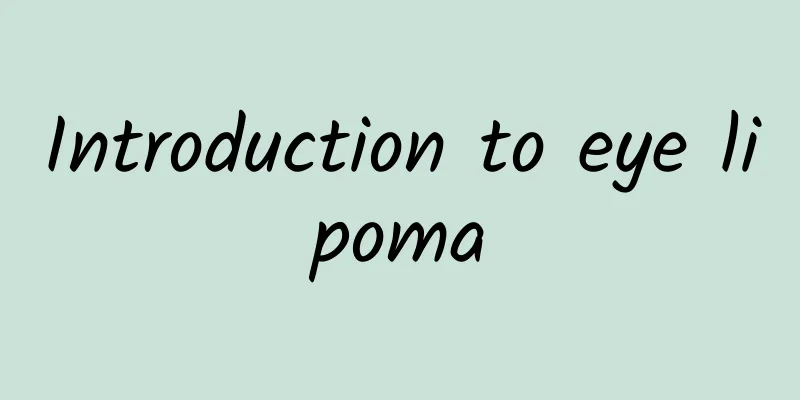Causes of hallucinations

|
What is an illusion? Simply put, it is something that did not happen in reality but actually appears in your mind. It is an unrealistic thing that you make up in your mind. Hallucinations are not real, but everyone has experienced them. Having a hallucination once in a while may be a relatively normal phenomenon. If a person experiences hallucinations frequently, he or she may have a mental illness. I don’t know if you have ever really understood the reasons for hallucinations! 1. Hallucination refers to the perceptual experience that occurs when there is no corresponding objective stimulation. In other words, hallucination is a subjective experience, and the subject's feelings are similar to perception. This is a more serious perceptual disorder. The difference between hallucination and illusion is that the former has no objective stimulus. Because the feelings are often realistic and vivid, they can cause emotions or behavioral reactions such as anger, sadness, panic, escape, and even aggression towards others. Attempts to convince someone who has a hallucination experience that they do not believe in it are sometimes futile. Hallucinations can occasionally occur in normal people. For example, auditory or visual hallucinations that occur when you are half asleep are called hypnagogic hallucinations; hallucinations that occur when you are about to wake up but are still sleepy are called hypnagogic hallucinations. Hallucinations can also be produced through suggestion. As mentioned in past documents, some people who were addicted to religious fanaticism claimed to have seen "Guanyin Bodhisattva" or "Jesus Christ", which does not necessarily have pathological significance. However, it should be said that hallucinations are mostly pathological. If a person experiences hallucinations multiple times, he or she should be examined promptly so that his or her psychological disorder can be diagnosed and treated to prevent accidents such as injuring others, running away, or committing suicide under the influence of hallucinations. 2. Hallucinations can occur for many reasons, including central nervous system disease, emotional influences, suggestion, amblyopia and hearing loss, sensory deprivation, etc. Any factor that increases the burden on the sensory analyzer or increases its activity can lead to hallucinations. After climbers reach the top of a mountain several thousand meters high, they may experience hallucinations due to lack of sensory stimulation. Hallucinations are also common in the elderly after cataract removal surgery, which may be due to sensory deprivation and mild senile brain changes. People with impaired vision and hearing loss may experience illusions and hallucinations due to difficulties in distinguishing between sensory analyzers. Therefore, hearing-impaired people often suffer from paranoid psychosis. There are many clinical and experimental evidences that hallucinations are caused by organic brain diseases. 3. Hallucinations can occur in conditions such as high fever and epilepsy. It can also occur in some abnormal psychological states, in which the patient abandons objective and real concepts and reacts to his own psychological state, treating them as characteristics of external stimuli. Some experts believe that the brain needs a certain minimum level of stimulation from the environment. If this minimum condition is not met or is destroyed by some psychological factors, the brain may be prompted to reconstruct the meaning of reality and the environment based on past experiences, personality factors, etc. This leads to hallucinations. This theory holds that everyone has the ability to produce hallucinations, but under normal circumstances, this ability is often suppressed by the brain's constant interaction with real stimuli through the senses. There are also some drugs that can cause hallucinations, but these are not true hallucinations, unlike self-generated hallucinations, but are simply the result of the effects of these drugs on the brain. 4. Popov believed that hallucinations were caused by an inhibitory process. He pointed out that hallucinations are enhanced when falling asleep or just waking up, weakened by caffeine, and enhanced by bromide. In fact, hallucinations are indeed common in the state between sleep and wakefulness. These two opinions should be seen as complementary to each other, because modern research on central nervous system inhibition has proved that not all central nervous system neurons are in an inhibited state during sleep, and some neurons are still in a certain state of excitement. Therefore, hallucinations may be caused by a certain degree and range of excitation of the cerebral cortex under the condition of central inhibition. Since hallucinations are a response of the brain as a whole, attempts to localize hallucinations neuroanatomically are incorrect. |
<<: Body feels hot when sleeping at night
>>: What to do if you fall asleep
Recommend
Does coughing with intravenous drip heal quickly?
Coughing is just a symptom, it is not a separate ...
Difference between Rubella and Eczema
In daily life, many people are accustomed to conf...
Shit is all water
Everyone may encounter a situation where bowel mo...
What should pregnant women do if they have white hair?
Studies have found that heredity, disease, or a l...
The harm of liver depression and blood stasis in women
Liver diseases are generally more serious, and th...
What to do if the baby's neck is broken by drowning
Because the baby's skin is very tender, it is...
Symptoms of Cardiac Inflammation
What are the symptoms of cardia inflammation? Thi...
How long after the uterine cleaning can I take a bath?
Artificial abortion generally requires uterine cl...
What are the effects and functions of raw Puhuang?
Have you ever paid attention to the effects and f...
What causes women to have body aches?
For women, if they experience body aches, they sh...
Why do people need to detoxify?
Each of us has some toxins in our bodies, and the...
How to treat acne conglobata
The appearance of acne not only affects our image...
How to treat malnutrition in children
Parents are very worried when their children are ...
Is this what happens when spleen deficiency causes big eye bags and kidney deficiency causes dark eye circles?
Frequent bags under the eyes and dark circles are...
What acupoints should be pressed for hiccups
Hiccups should be a normal physiological phenomen...









